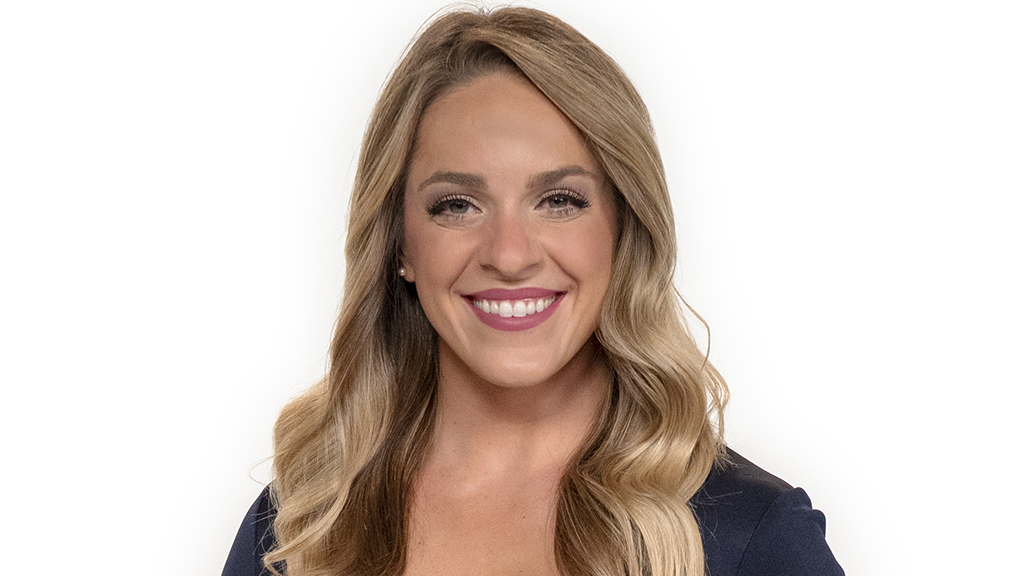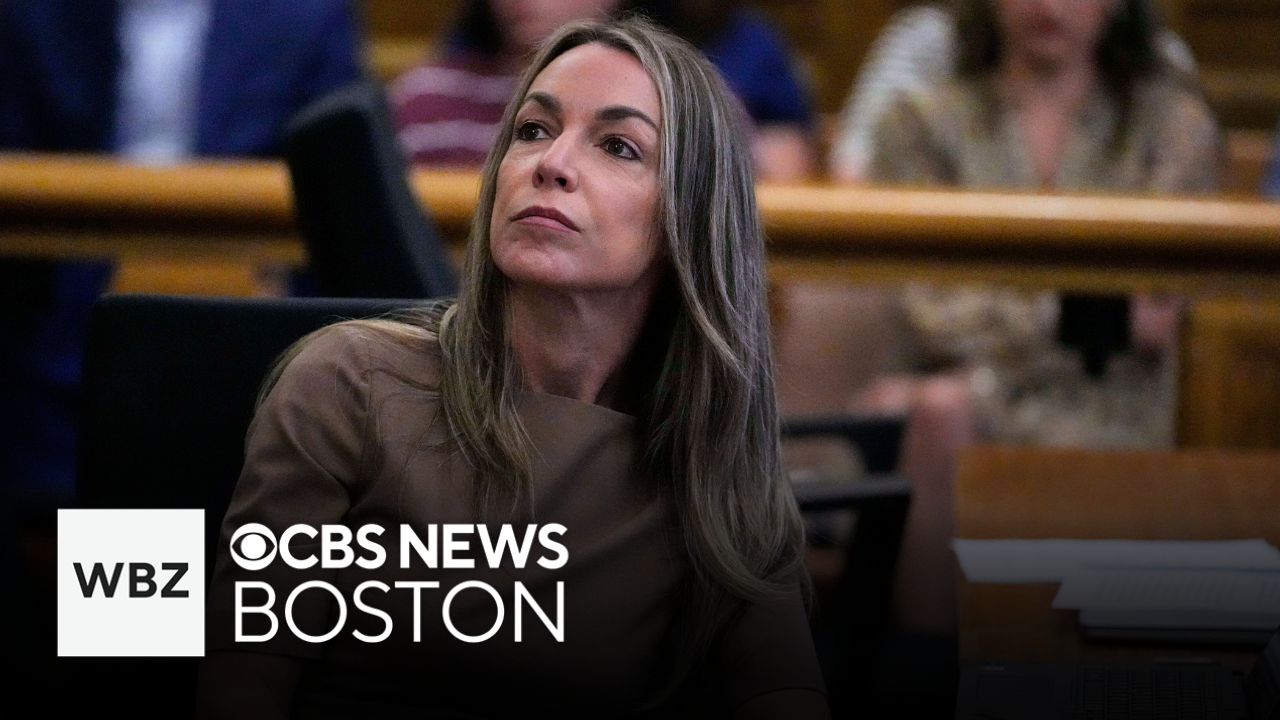Karen Read's attorneys abandon third-party culprit plans before closing arguments
Defense attorneys for Karen Read abandoned their plans to blame two other men for John O'Keefe's death ahead of Friday's closing arguments in the high-profile trial. Jurors had the day off Thursday while attorneys held a final hearing with Judge Beverly Cannone, setting the stage for closing arguments and the start of deliberations on Friday in the high-profile trial.
Jurors will be deciding Read's fate on charges of second-degree murder, manslaughter while operating under the influence of alcohol and leaving the scene of personal injury and death.
Prosecutors say that after a night of heavy drinking, Read hit and killed her boyfriend, Boston police officer John O'Keefe, with her Lexus SUV and left him to die in the snow outside 34 Fairview Road in Canton. Read's attorneys say several people, including law enforcement, are trying to frame her.
Defense withdraws "missing witness instruction" request
The defense changed course on one topic that was expected to be discussed Thursday. The defense had previously filed a motion for jurors to receive a "missing witness instruction" for Brian Albert, Brian Higgins, and Michael Proctor. Early in Thursday's hearing, defense attorney David Yannetti withdrew that request.
Albert owned the home at 34 Fairview Road at the time of O'Keefe's death, and Higgins was in the home on the night in question. Both have been repeatedly called alternate suspects in the death of O'Keefe by the defense. Proctor was fired by Massachusetts State Police for his conduct as a lead investigator in Read's case. None of the men were called by the prosecution to testify.
Until Thursday, the defense said it planned to seek a missing witness argument and jury instruction, which means the court "may instruct the jury that an adverse inference may be drawn from a party's failure to call a witness" under Massachusetts law.
Brian Higgins and Brian Albert cannot be blamed
During Read's first trial, the defense spent a great deal of time attempting to highlight that Albert and his teenage nephew Colin Albert, along with Higgins, could have killed O'Keefe inside the home during a fight.
Ahead of Read's second trial, Cannone ruled the defense had not presented enough evidence against Colin Albert and could not blame him as part of their case. The judge said that if attorneys presented enough evidence during trial, they could name Higgins and Brian Albert as alternate suspects in their closing arguments.
"Is the defense going to argue that Brian Higgins did this?" Cannone asked on Thursday.
"We're going to argue that police failed to investigate whether Brian Higgins did it," Yannetti answered.
The judge said that Read's defense did not present enough evidence against the men and will not be allowed to say they should be considered suspects.
"I did say that I would give you the opportunity to develop testimony regarding Brian Higgins and Brian Albert as third-party culprits. That threshold that you need to make to do that, to argue them as third-party culprits has not been made by the defense," Cannone said. "So you cannot argue that either Brian Higgins or Brian Albert committed or had the motive and all of that, not pure third-party culprit."
Cannone said the defense is allowed to argue that police were aware Higgins could have been a suspect in O'Keefe's death, but did not act on the information.
WBZ legal analyst Katherine Loftus explains the theory, called a Bowden defense. Loftus said her lawyers could say, "hey this is a police investigation that was so substandard you can't possibly find her guilty, which is a very different argument than he went in the house and was killed there."
Text messages revealed that Higgins and Read had exchanged "flirty" text messages in the weeks before O'Keefe's death. Yannetti argues that Higgins was angered by seeing O'Keefe kiss Read at the Waterfall Bar & Grille in Canton on the night in question.
Closing arguments in Karen Read trial
Closing arguments are expected to begin at or just before 9 a.m. on Friday.
Cannone informed attorneys during Thursday's hearing that they will have 75 minutes for closing arguments. On Wednesday, defense attorney Alan Jackson had asked for 90 minutes instead of the standard one hour.
Once arguments are complete, there will be a short lunch break. After lunch, jurors will return to receive instructions on how they will deliberate the charges. Jurors will be in a room with all of the evidence, including books of reports, O'Keefe's clothing and the taillight from Read's SUV.
Cannone said she hopes jurors will be able to begin deliberating before the day is over. She plans to ask members of the jury on Friday if they are able to stay potentially as late as 5:30 p.m. instead of the typical 4 p.m. dismissal.
Karen Read verdict slip
Read's first trial ended in a mistrial due to a "starkly divided" hung jury. In arguments that were rejected as high as the U.S. Supreme Court, Read's defense tried to have two charges thrown out because jurors revealed after the trial that they were unanimous to acquit her on charges of murder and leaving the scene. The jurors said they were only deadlocked on manslaughter.
Those discussions were never revealed in open court before the mistrial was declared.
As part of the hearing Thursday, defense attorneys introduced a proposed new verdict slip for the manslaughter charge.
"Very important as I learned the hard way," Read said outside court Thursday.
During her first trial, the jury received a separate verdict slip for each charge with an option of guilty or not guilty. One change was made to the manslaughter slip during Read's last trial. Instead of just "not guilty," it read "not guilty of manslaughter or any lesser included charge," at the request of defense attorneys.
For Read's second trial, defense attorneys proposed a new verdict slip for count two which they say could clear up confusion. Judge Cannone indicated that she likely would stick with similar verdict slips like the first trial, but would take the defense's proposed verdict slip under consideration.
"I think it's less so the jury form itself, which was a problem," Loftus said. "And you know what we have heard from jurors from trial number one was, they were confused could they, you know, could they report back a verdict on some, even if they were undecided."
Karen Read trial nears end
Read's defense rested its case late Wednesday after Andrew Rentschler, a biomechanist from ARCCA, completed a second day of testimony and said he concluded O'Keefe was not hit by a vehicle. Rentschler was the 11th witness called by the defense after the defense called 38 people to testify.
The prosecution was expected to call several rebuttal witnesses at the conclusion of Rentschler's testimony. Instead, once the defense rested, special prosecutor Hank Brennan said he would not be calling any more witnesses.
During Read's first trial, deliberations began on June 25. Jurors first signaled they were deadlocked on June 28, and a mistrial was declared on July 1.





